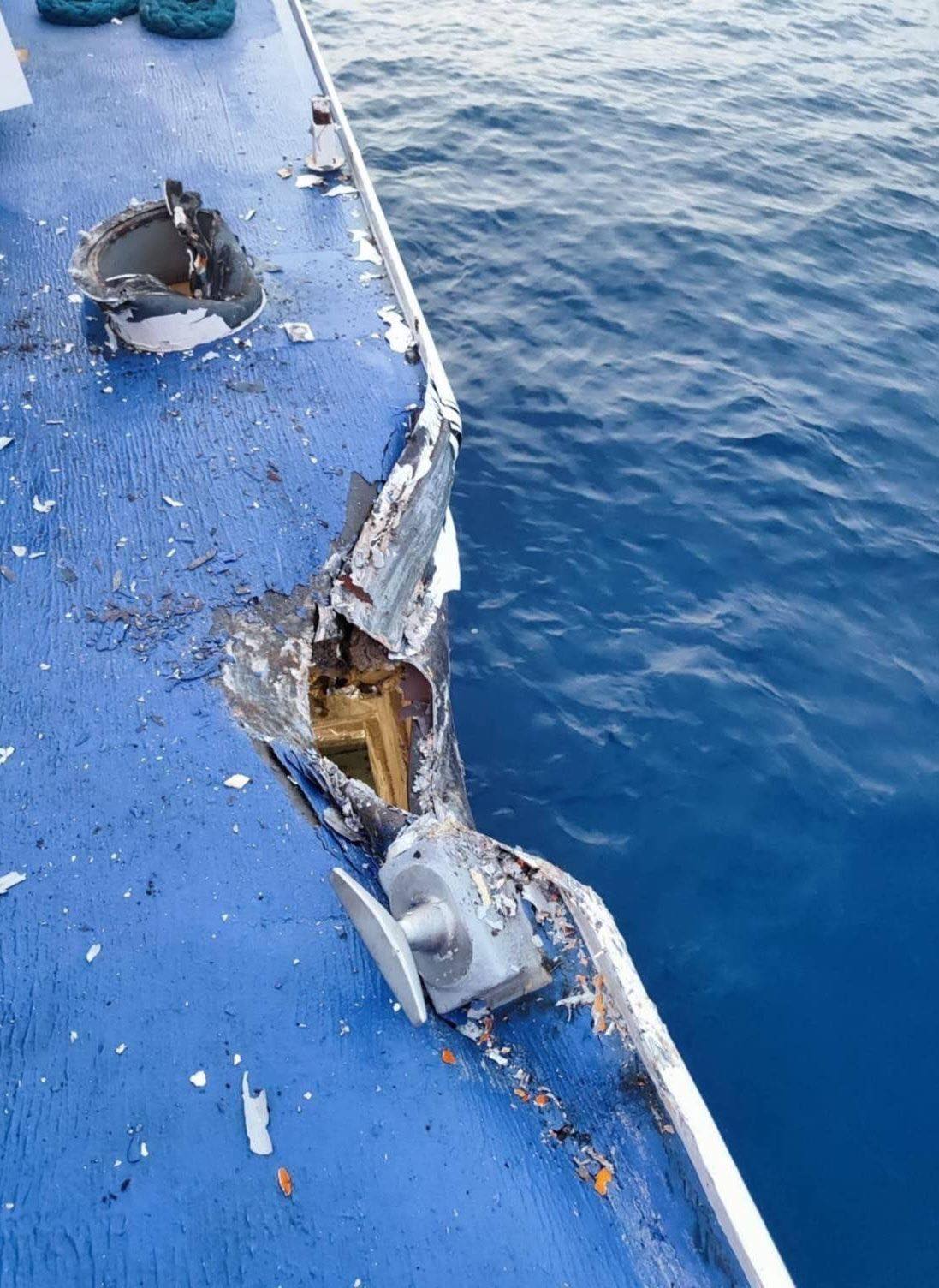PH mulls diplomatic protest vs China over Escoda collision
The Philippines is preparing to lodge a diplomatic protest against China after its coast guard vessels “rammed and damaged” two Philippine Coast Guard (PCG) vessels in the vicinity of Escoda (Sabina) Shoal, which is well within the Philippines’ exclusive economic zone (EEZ).

Philippine Coast Guard (PCG) ship BRP Cape Engaño sustains a hole with a diameter of 1.10 meters located on the starboard quarter after colliding with a China Coast Guard vessel in Escoda Shoal on Aug. 19, 2024. (PCG photo)
This was revealed by Presidential Assistant on Maritime Concerns Andres Centino during a Palace press briefing on Tuesday, Aug. 20.
“The (Philippine) Coast Guard has been directed to gather all this evidence and the proper documentation for a possible filing of protest by (the Department of) Foreign Affairs,” the official said.
This was seconded by National Maritime Council (NMC) Spokesperson Alexander Lopez.
“Our Department of Foreign Affairs would probably file a diplomatic protest or note verbale--and this is seriously being studied by the Department of Foreign Affairs,” he stated.
In a statement delivered by Lopez, the council contradicted China’s claims that the PCG vessels—BRP Bagacay (MRRV-4410) and BRP Cape Engaño (MRRV-4411)—while in a regular and routine logistics mission “deliberately collided” with its ships.
“On the early morning of 19 August 2024, Chinese Coast Guard (CCG) vessels rammed and damaged the two PCG vessels in the vicinity of Escoda Shoal,” the NMC said.
Calling the actions “unprofessional and dangerous,” the NMC stressed that such were in violation of international law, including the United Nations Convention on the Law of the Sea (UNCLOS) and the 1972 Convention on the International Regulations for Preventing Collisions at Sea (COLREGs).
“These illegal actions do not contribute to confidence building measures necessary for the improvement of relations on the basis of mutual respect and for a rules-based international order. Hence, the Philippines urges China to refrain from aggressive actions and adhere to international law,” the statement added.
In a statement on Monday, Aug. 19, Beijing claimed that the PCG vessel collided with the CCG vessel in an “unprofessional and dangerous manner” and warned the Philippines to stop further provocations or else “all the consequences arising from this will be borne by the Philippines.”
But the NMC also turned the table on China, expressing its “serious concern over the deliberate harassment and infringement by China against Philippine sovereignty, sovereign rights and jurisdiction in the West Philippine Sea.”
The Escoda Shoal, which sits merely 75 nautical miles or about 140 kilometers off Palawan and is deep within the Philippines’ 200-nautical-mile EEZ, has also been the site of a standoff between the Philippines and China since April after the former sent one of the PCG’s largest ships, the BRP Teresa Magbanua, there amid reports of Beijing’s reclamation attempts.
“The government remains committed to the President’s directive for a diplomatic approach and the peaceful resolution of disputes,” the statement said.
“The Philippines will continue to uphold its rights and jurisdiction in the West Philippine Sea; sustain our routine maritime activities; and protect its territory and maritime zones from environmental degradation and other illegal activities,” it stressed.
The Philippines and China have had repeated confrontations in the disputed waters, specifically near the Ayungin (Second Thomas) Shoal, which led to a recent provisional agreement regarding resupply missions to a grounded military ship there.
China has maintained its claim of the entire South China Sea, including waters and features inside the Philippines’ EEZ, rejecting also the 2016 arbitral tribunal ruling that invalidated the basis of such claims.